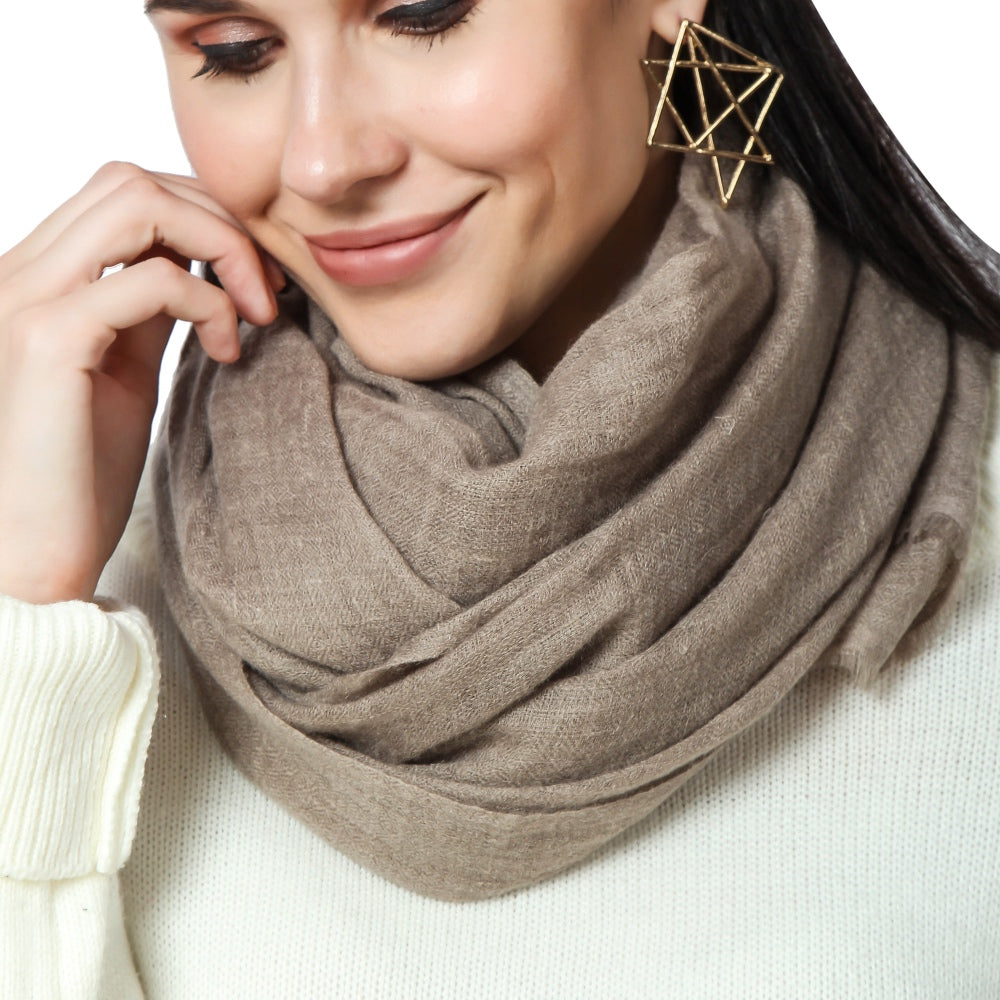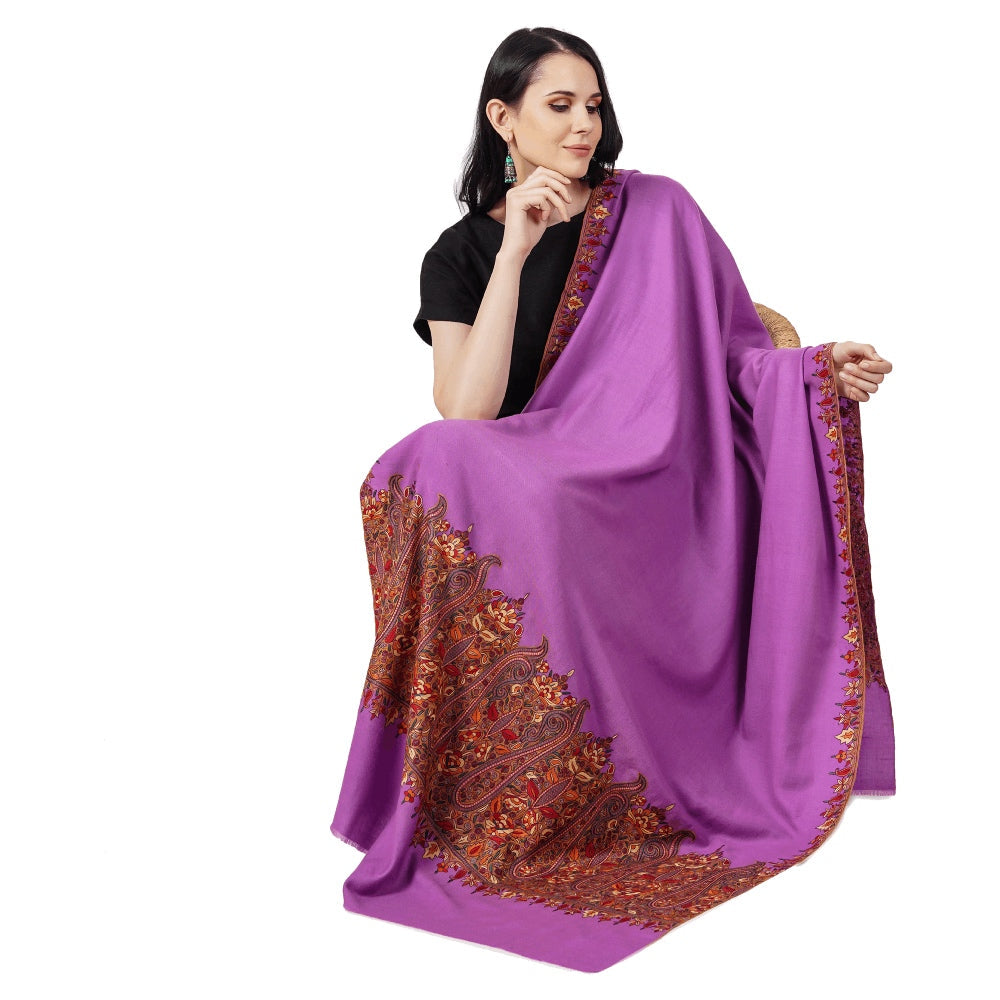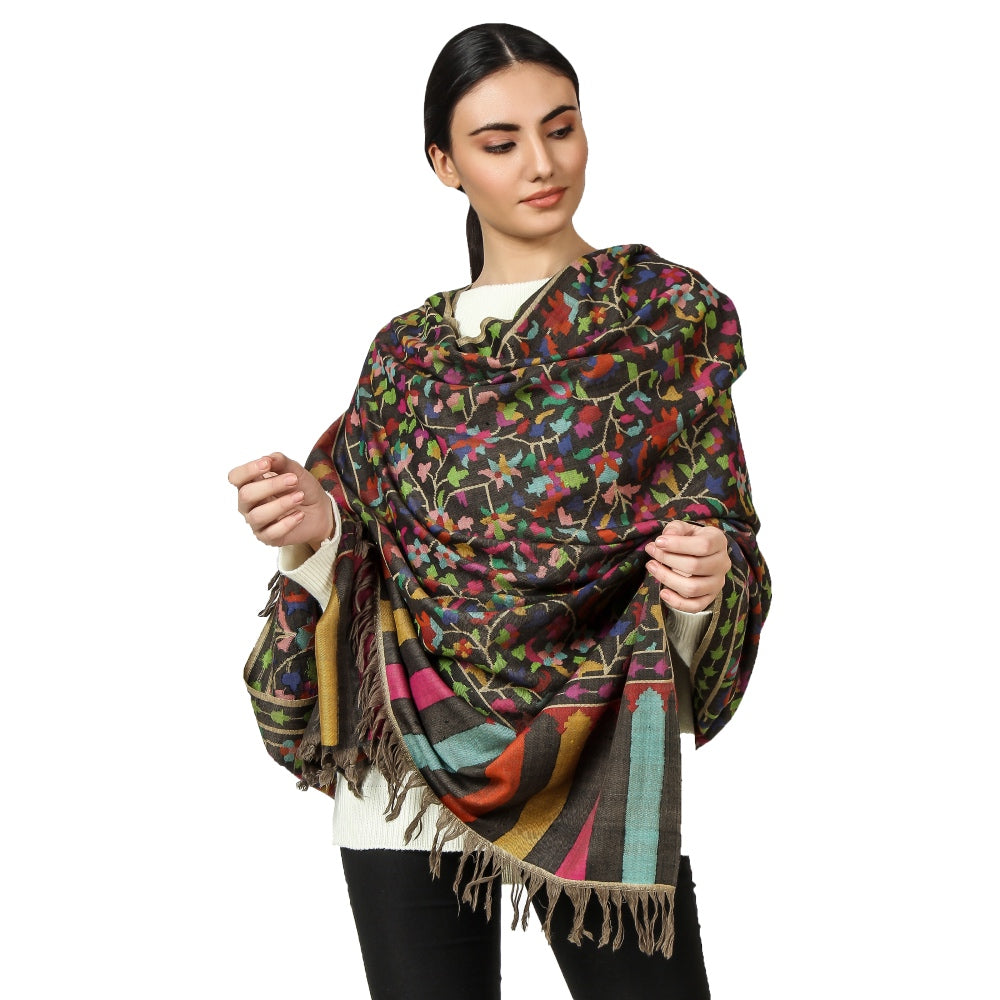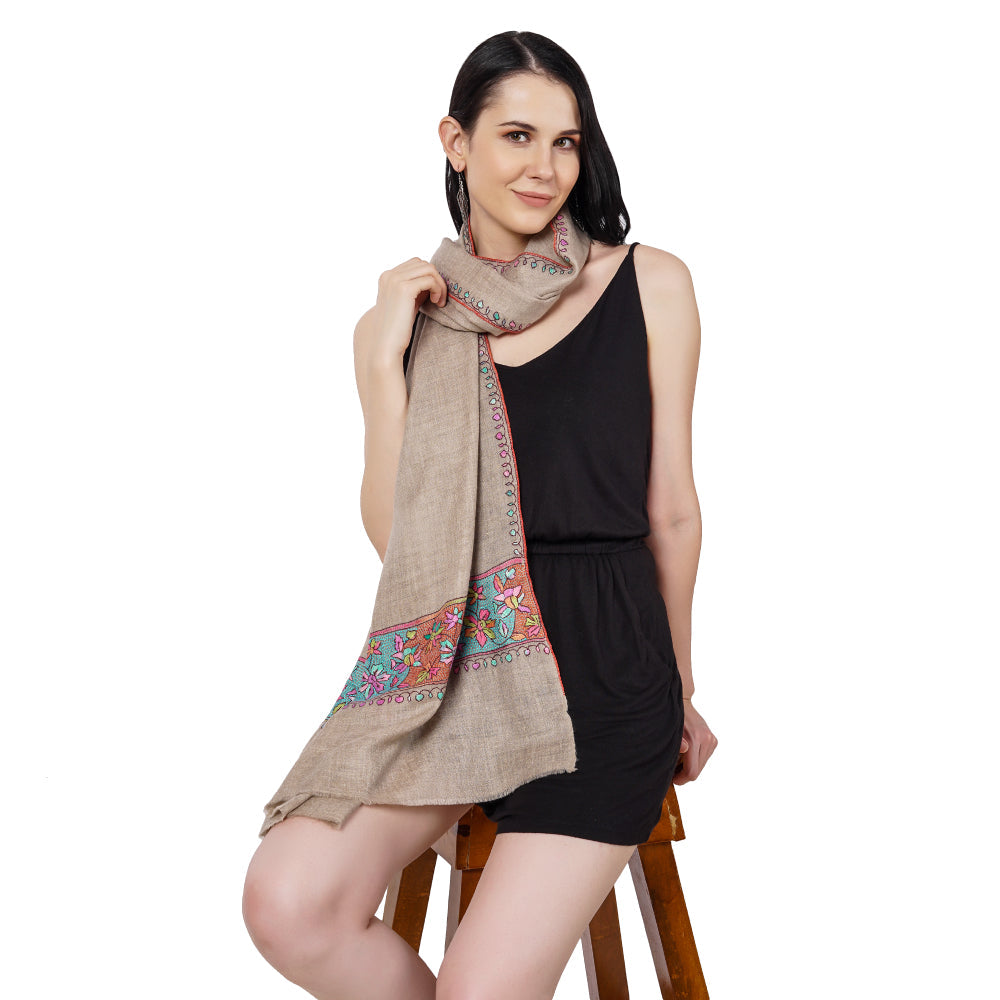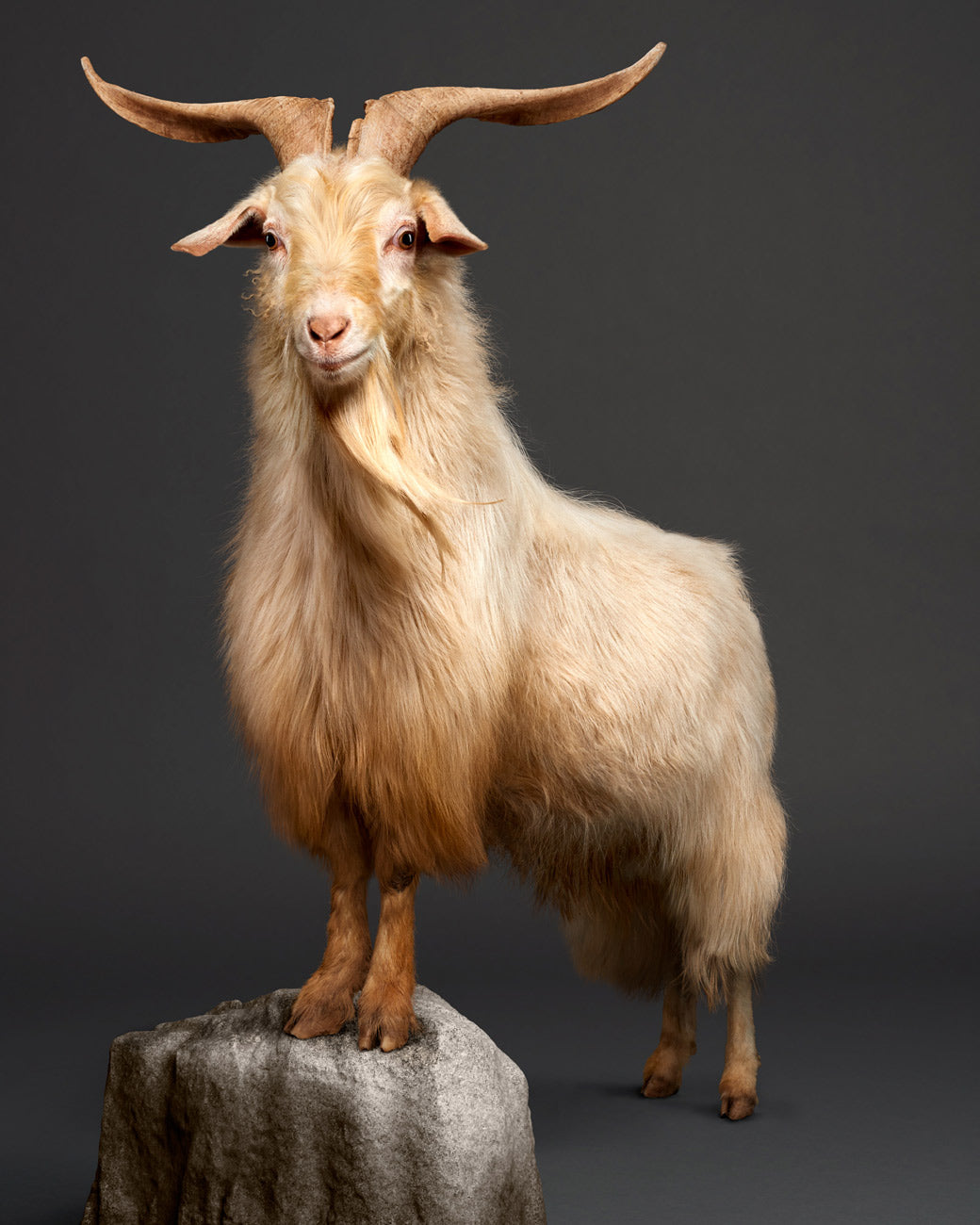
How Can You Tell if Cashmere is Real?
Share
Cashmere is a luxury fabric that has been prized for its softness, warmth, and durability for centuries. However, as demand for cashmere has increased, so has the prevalence of fake or low-quality cashmere products on the market. If you're interested in buying cashmere, it's important to know how to tell if it's real so that you can make an informed purchasing decision. In this article, we'll explore some of the key ways to identify real cashmere, as well as some tips for avoiding fake or low-quality products.
What is Cashmere?
 Before we dive into how to tell if cashmere is real, it's important to understand what cashmere is and why it's so highly valued. Cashmere is a type of wool that comes from the undercoat of cashmere goats, which are native to the high-altitude regions of Asia. The goats' undercoat is incredibly soft and warm, making it ideal for use in clothing and textiles.
Before we dive into how to tell if cashmere is real, it's important to understand what cashmere is and why it's so highly valued. Cashmere is a type of wool that comes from the undercoat of cashmere goats, which are native to the high-altitude regions of Asia. The goats' undercoat is incredibly soft and warm, making it ideal for use in clothing and textiles.
To obtain cashmere, the goats are combed or sheared during the spring molting season, and the soft undercoat is separated from the coarser outer hairs. This undercoat is then cleaned, sorted, and spun into yarn, which can be used to make a variety of products, including sweaters, scarves, and blankets.
One of the reasons that cashmere is so highly valued is because it's incredibly soft and comfortable to wear. It's also warm and lightweight, making it an ideal fabric for cold weather. However, because cashmere is a luxury material, it can be expensive, and some unscrupulous manufacturers may attempt to pass off fake or low-quality products as real cashmere in order to make a profit.
Also read: What you need to know about Cashmere before you buy it.
How to Tell if Cashmere is Real
There are several ways to tell if cashmere is real, including:
1. Check the Label
One of the easiest ways to tell if cashmere is real is to check the label on the product. A real cashmere product should be labeled as 100% cashmere or pure cashmere. If the label lists other materials, such as wool or acrylic, then it may not be real cashmere. You can also look for certifications, such as the Cashmere & Camel Hair Manufacturers Institute (CCMI) certification, which guarantees that the product is made from real cashmere.
However, it's worth noting that not all manufacturers are required to label their products accurately, so it's important to also conduct a touch test and examine the garment itself to determine whether it's real cashmere.
2. Conduct a Touch Test
Another way to tell if cashmere is real is to conduct a touch test. Real cashmere should feel incredibly soft and silky to the touch, with a slight sheen. It should also feel warm and slightly heavy, due to the density of the fibers.
To conduct a touch test, hold the fabric up to your cheek and gently rub it against your skin. Real cashmere should feel smooth and soft, with no rough or scratchy patches. It should also feel warm to the touch, even if it's been stored in a cool place.
3. Examine the Garment
In addition to the label and touch test, there are a few other things to examine on a cashmere garment to determine its authenticity:
- Weave: Real cashmere should have a tight, even weave. If the weave looks loose or uneven, then it may not be real cashmere unless it is a high quality Handmade Cashmere, because each piece is made by hand it is not uncommon for the texture and appearance of the fabric to be slightly uneven, with variations in thickness, softness, and color.
-
Weight: Cashmere is a relatively heavy fabric, given its thickness and density. If the garment feels too lightweight or flimsy, then it may not be real cashmere
4. Look for Pilling
Pilling is a common issue with cashmere products, and it occurs when the fibers rub together and form small balls or pills on the surface of the fabric. While pilling can be a sign of quality cashmere, it can also be a sign of lower-quality cashmere that has been processed poorly.
If you're examining a cashmere garment, look for signs of pilling. If the fabric has a lot of pills or the pills are larger than normal, then it may be a sign that the cashmere is of lower quality.
5. Consider the Price
While the price of a cashmere product is not a foolproof indicator of its quality or authenticity, it can be a useful guide. Real cashmere is a luxury fabric that is expensive to produce, so if a product seems too good to be true in terms of price, then it may not be real cashmere.
That being said, high prices are not always a guarantee of quality or authenticity, so it's important to consider all of the other factors listed here when trying to determine whether a product is real cashmere.
6. Get a Second Opinion
If you're still not sure whether a cashmere product is real, then consider getting a second opinion from a trusted expert. This could be a tailor, a clothing store salesperson, or even a friend or family member who has experience with cashmere.
Getting a second opinion can help you make a more informed purchasing decision and ensure that you're getting a quality product.
How to Avoid Fake Cashmere
In addition to knowing how to tell if cashmere is real, it's also important to know how to avoid fake or low-quality cashmere products. Here are a few tips:
-
Buy from reputable retailers: When shopping for cashmere products, it's important to buy from reputable retailers that you trust. Look for retailers that specialize in cashmere, as they are more likely to carry high-quality, authentic products.
-
Avoid suspiciously low prices: As mentioned earlier, if a cashmere product seems too good to be true in terms of price, then it may not be real cashmere. Avoid products that are significantly cheaper than similar products from reputable retailers.
-
Check the return policy: When buying cashmere products, it's a good idea to check the return policy. A reputable retailer should have a fair and straightforward return policy that allows you to return a product if you're not satisfied with it.
-
Look for certifications: As mentioned earlier, the Cashmere & Camel Hair Manufacturers Institute (CCMI) certification is a guarantee that a product is made from real cashmere. Look for this certification or similar certifications when shopping for cashmere products.
-
Do your research: Before buying a cashmere product, do some research on the brand and the retailer. Look for reviews and customer feedback to get a sense of the quality and authenticity of their products.
Conclusion
In conclusion, if you're interested in buying cashmere, it's important to know how to tell if it's real so that you can make an informed purchasing decision. While there are several ways to identify real cashmere, including checking the label, conducting a touch test, and examining the garment itself, it's also important to consider other factors such as the price and the reputation of the retailer.
By following these tips, you can avoid fake or low-quality cashmere products and ensure that you're getting a quality, authentic product that will provide you with years of warmth and comfort.

